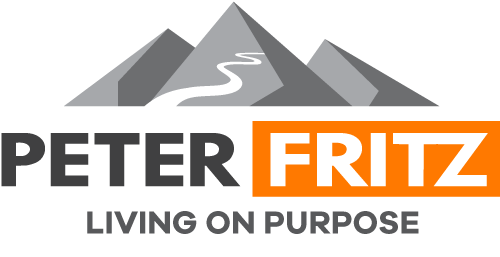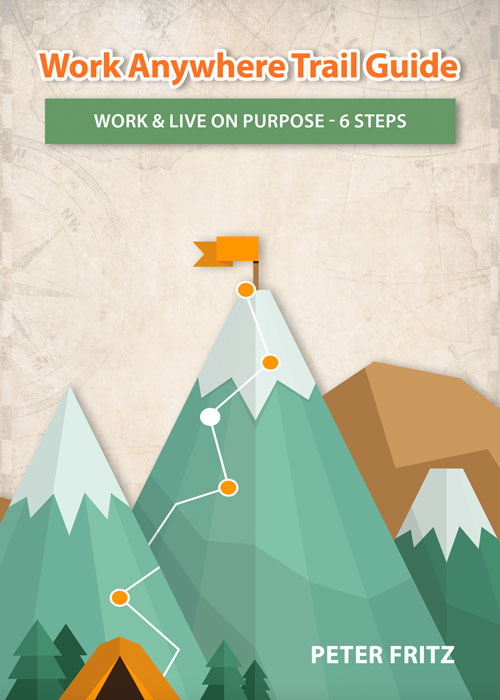[smart_track_player url=”http://traffic.libsyn.com/midlifetribe/070_Worried_about_job_security-Start_Freelancing.mp3″ background=”#f2f2f2″ social_gplus=”false” social_linkedin=”true” social_email=”true” ]
“There are no certainties in life except death and taxes.”
These words, penned in 1789 by Benjamin Franklin in a letter to Jean-Baptiste Leroy, was actually inspired by a statement from Daniel Defoe’s “The Political History of the Devil”, yet it remains truer today than ever before.
We live in a time where the rate of change is accelerating faster than our parents ever imagined. Businesses large and small are frequently dying or consolidating, meaning our jobs today are far from certain.
Moreover, words like ‘loyalty’ and ‘service’ are cast aside in favour of sexier ones like ‘shareholder value’, ‘competitive advantage’ and ‘economies of scale’. If you aren’t worried about it, your situation might be worse than you realise.
I’ve had a taste of this at different times in my career, and the only things that kept me sane were the support of my family and the fact that I’ve always freelanced on the side.
I talk a lot these days about the need for a side hustle and various ways to approach it. But without doubt, the fastest and easiest way to build insurance into your income is through freelancing.
Having additional sources of revenue is the best way to ensure you won’t be tossed on the scrap heap and forced to eat out of garbage cans should you become ‘surplus to requirements’.
It’s Easier if You’re Older
If you’re over 40, you’ve acquired a tonne of knowledge, wisdom and experience in a number of fields (some professionally, some personally), and at least one of them can likely be deployed in a freelancing capacity.
Because today’s employers require fewer full-timers, it is freelance and contract labour that’s filling the gaps and with it, showing new opportunities for those agile enough to take advantage. Full-time employees are expensive to hire, train, house and insure, and they’re difficult to deal with when their performance falls short of expectations. They’re also expensive to replace when they leave.
Freelance workers, on the other hand, can be acquired quickly and at a lower cost, and best of all, they’re already skilled in the service that businesses need for the job – because that’s part of how they’re selected in the first place. What’s more, they come bundled with their own equipment, their own workspace and their own insurance.
Over the years, I’ve acquired a range of new skills and knowledge, and I’ve sold those skills to businesses both here and abroad in a number of areas, including photography, writing, marketing, sales strategy, web design and advertising (both print and digital).
And as my reputation has grown, I’ve acquired new clients without having to ‘sell’ them at all, because they’ve come to me through referrals. Not one has asked to see my formal qualifications because my work speaks for itself. My work is my qualification.
This is where I see a lot of people vacillate. They fear they’re not ‘qualified’.
Am I Expert Enough?
My 15-year-old daughter is booked solid almost every week as a freelance makeup artist. Is she qualified? No, not formally. Is she good at it? Absolutely!
Sarah’s client list and her 130,000 followers on YouTube are her qualifications. She’s a professional through and through, and people pay good money to experience her skills first-hand.
If and when she decides to work for a film studio or an agency, she’ll bring a huge amount of credible, proven experience to the table because of her documented history as a practitioner.
Now think about this. Sarah’s only 15. She has less than three years experience in this game – all of it executed out of school hours and on weekends, and now she has more work than she can handle.
How about you? What have you learned over the last 10-20 years that you can parlay into a part-time freelancing career?
Believe me, there is something that you know better than many others, and they’ll gladly pay you for that knowledge. And you don’t have to be the best, either; that’s a common misnomer. No, you only need to know more than the person who’s paying you, and that’s all.
Thinking you need to be ‘one of the best’ is a common form of imposter syndrome. We worry what others will think of us, or that we’ll be ‘found out’ by those much smarter than us. But the truth is, there will always be someone better than you. Likewise, there will always be plenty who aren’t. And some of those people will become your clients.
I’ve been privileged to work for some very smart people, but they’re not skilled in the areas that I am. They probably could be if they devoted a few years to learn what I know, but they have better things to do with their time, so they’d rather pay me to take care of things for them.
And it’s the same for you.
But What Would I Sell?
I encourage you to sit down one day with a pad and pen and think broadly about all the things you’ve done over the years – professionally and personally. Write them down. Then go granular on each of them – particularly the ones you enjoy and break each of them down into niche areas. Some of these will have freelancing potential.
I’ll give you an example. Say you’ve been crafting ad campaigns for your employer in the education sector, and you’re considered the go-to gal for Facebook, Google or Instagram ads. I’m betting there are tutors and other non-competing educators out there who could use your skills, too.
In a single weekend, you could craft a one-page website explaining who you are, what you do and who you serve. Tools like WordPress and Squarespace make this very achievable – especially Squarespace if you’re a total newbie.
An online scheduling tool like Calendly or Acuity (affiliate link from my other site, MidlifeTribe) let you set the times you’re available to discuss projects, while the actual work can (should) be done outside of work hours.
And don’t forget the importance of effective copy. On everything.
Your website, your social media posts; anything that’s customer-facing needs to hit the mark and illustrate who you are and the value you offer. Don’t be lazy with this one.
I spend a lot of time reading the work of great writers and two books that have helped me enormously with my writing are On Writing by Stephen King and Nobody Wants to Read Your Sh*t (best title ever) by Steven Pressfield.
However the best resource I’ve found for learning how to write like me is an online course by Marie Forleo and my favourite copywriter, Laura Belgray, called The Copy Cure. If you want to craft copy that cuts through the bullsh*t and speaks to your audience, it’s worth every damn rubel.
And while you’re doing that, grab Laura’s brilliant free download called “The 5 Secrets to Non-Sucky Copy” over at her site, talkingshrimp.com. Read anything of Laura’s and then try not to become a fan. I dare you!
Most of us get hung up on is choosing a single idea to work on. Or we think we’re not good enough to charge anything for our skills.
The first problem is a real one, and I have an idea for you on that in a sec. The other problem is just your uncle Frank talking. Ignore him (or whoever’s living inside your head). You’ll be surprised what people are into – and will pay for.
To make sure you’re working on the right idea, try out the brilliant decision matrix in the ‘Choose Your Topic’ course over at Fizzle. If you use this link you’ll get to try out everything for five weeks completely free. I’ve been a member for years and their online training videos and the community of other entrepreneurs is the best out there. Ask anyone.
Finally, you’ll need a way to charge people for your blood, sweat and tears, and I personally use XERO. It’s simple, elegant and it creates professional looking invoices that show you mean business. Use this link and you’ll get 30 days to try it out.
Starting is 90% of It
And that’s about it. Sure, there are lots of other things you can (and probably will) do, but the key to creating anything worthwhile is to begin, then iterate along the way. You won’t get it perfect in the beginning. And what you think you’re going to do might change over time, too.
But you need to start.
Losing your job is ranked one of the most stressful events in a person’s life, along with divorce and moving house. But it needn’t be. You can protect yourself and blaze your own trail should the sh*t ever hit the fan. But it takes time, and freelancing is one of the best ways to start out.
They say the best time to plant a tree is 10 years ago, and the second best is today.
Start laying the groundwork now. Then one day, you’ll be able to extend Franklin’s statement to say, “There are no certainties in life except death, taxes and my moolah!“
[ss_click_to_tweet tweet=”There’s always someone better than you. Likewise, there are plenty who aren’t, and some of those people will become your clients. #freelancing #workfromhome #officeanywhere” content=”There’s always someone better than you. Likewise, there are plenty who aren’t, and some of those people will become your clients.” style=”3″ link=”1″ via=”1″]
Websites
- Fizzle -Training courses for indie entrepreneurs (get 5 weeks free)
- Smart Passive Income – Online business the right way
- The Copy Cure – Learn to write effective copy
- Talking Shrimp – Laura Belgray (the best copywriter in the universe)
Books
- Will it Fly? Book (Pay Flynn)
- Side Hustle Book (Chris Guillebeau)
- Choose Yourself Book (James Altucher)
- On Writing (Stephen King)
- Nobody Wants to Read Your Sh*t (Steven Pressfield)
RECENT POSTS
Working from home might save your life (and not just because of Coronavirus).
[smart_track_player url="http://traffic.libsyn.com/midlifetribe/Working_from_home_might_save_your_life_098.mp3" background="#f2f2f2" social_gplus="false" social_linkedin="true" social_email="true" ]Over the last four years, I've written thousands of words about the...
The Most Desirable Job Title in 2020
My youngest daughter, Sarah, just had her 17th birthday. In contrast to her 2016 Halloween bash when 100 teenagers descended on our home, this was a small gathering of just seven. As a seasoned entertainer, Sarah organised everything herself - the food (including...
How Working from Home Helped me Connect with my Kids
[smart_track_player url="http://traffic.libsyn.com/midlifetribe/How_working_from_home_helped_me_connect_with_my_kids_097.mp3" background="#f2f2f2" social_gplus="false" social_linkedin="true" social_email="true" ] When I was young, dumb and full of... hormones, I...
Download the Guide





